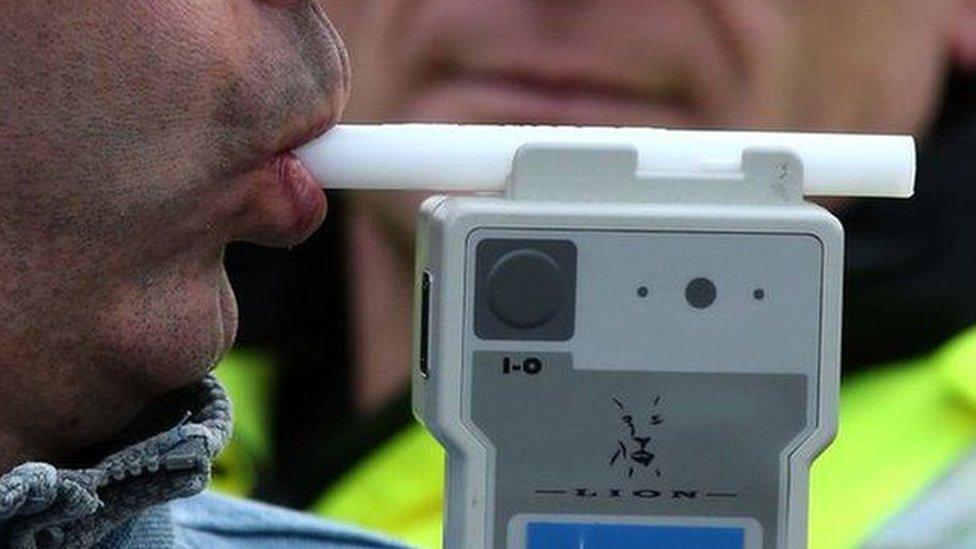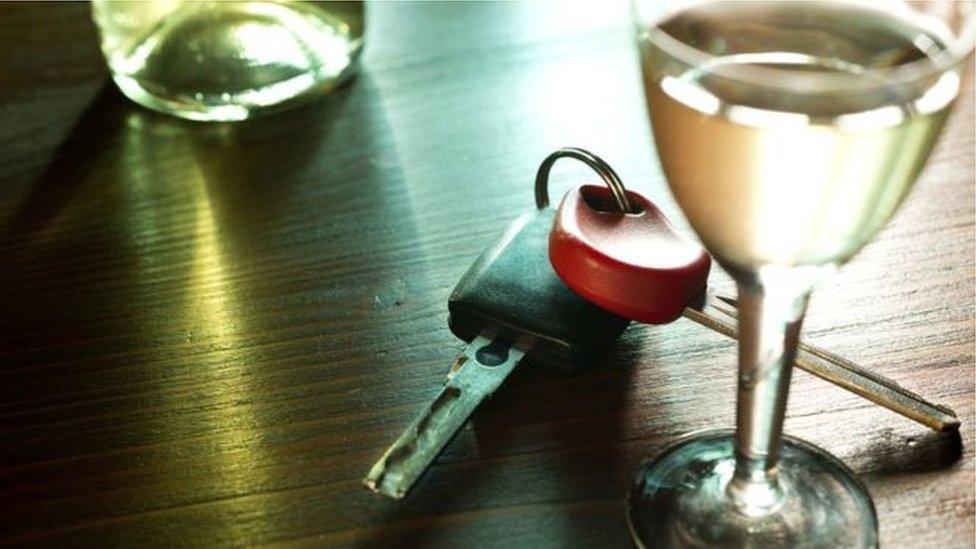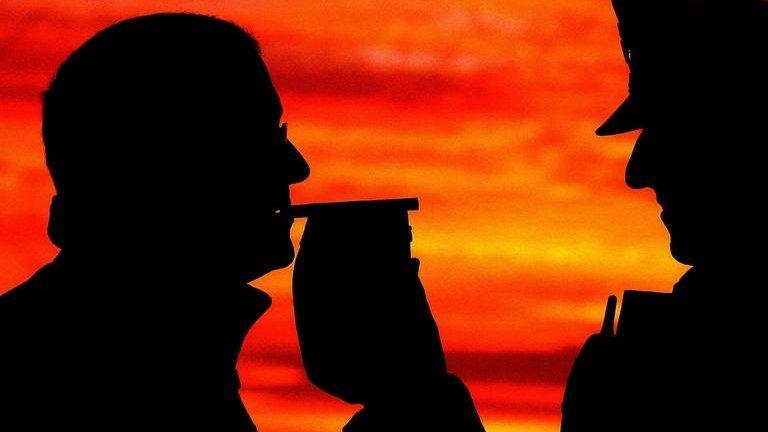Drink-driving laws delayed amid wait for breathalysers
- Published

A department official said the new breathalysers need 'rigorous' testing and may not be available for a year
A lack of adequate breath-testing equipment has delayed the introduction of stricter drink-driving laws.
Police are waiting for new equipment from the Home Office before the lower limits can be enforced, a Stormont department has confirmed.
A government committee heard, external that it could be 12 months before the new breathalysers are approved after "rigorous" testing.
The new laws, external, passed in April 2016, lower the limits by almost 40%.
Currently, the law allows for up to 35 microgrammes of alcohol in 100 millilitres of breath or 80 milligrammes of alcohol in 100 millilitres of blood.
The new laws reduce those limits to 22 microgrammes and 50 milligrammes respectively.
These limits are lower than those enforced in England and Wales, but in line with those in Scotland.
The new laws would also introduce a breath-alcohol limit of nine microgrammes for drivers with less than two years experience on the road and some professional drivers.
'We need to be 100% sure'
However, an official from the Department of Infrastructure told MLAs on Stormont's infrastructure committee last Wednesday that obtaining equipment that can test reliably for the lower limits is a "key remaining issue" in implementing the new laws.
"At the moment, the PSNI uses testing equipment that has gone through a rigorous Home Office-type approval process, but it needs new equipment to test reliably at the new lower limits," said Donald Starritt.

It was confirmed that current police equipment is 'not suitable' for testing the new lower drink-driving limits
"While we know that the Home Office is working to approve the new devices, we cannot, unfortunately, be specific about a timeline for when they will be available for the police to use."
Mr Starritt added that testing the new devices can take six or seven months.
"Realistically, it could be 12 months, but we are looking at ways of accelerating that.
"At the same time, we need to be 100% sure that the equipment and processes we use are defensible and reliable."
A Department of Infrastructure spokesperson confirmed that current breath-testing equipment used by the PSNI was "not suitable for testing at the new lower limits".
"New equipment is therefore needed and this requires 'type approval' from the Home Office," said the spokesperson.
"The home secretary has been contacted in efforts to move this forward and relevant officials continue to liaise with their Home Office counterparts.
"At this stage, however, a date for the introduction of the new arrangements cannot be confirmed."
- Published12 May 2014

- Published26 September 2011